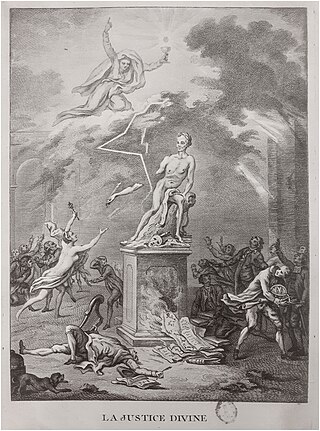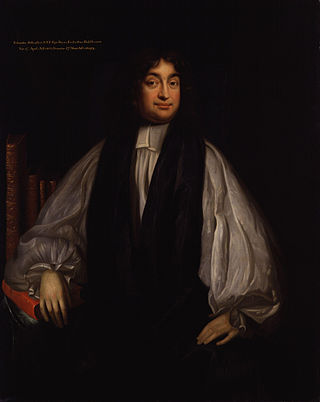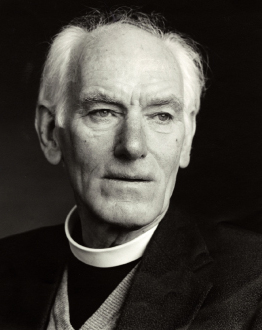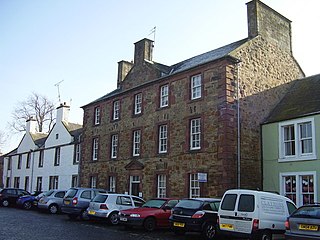William Thomas Gibson (born 1959) is an English historian and professor who specialises in the history of religion in Britain in the early modern period.
He received BA(Hons) MA (Wales), PGCE (Oxon), PhD (Middlesex), DLitt (Wales), FRHistS, FRSA, FBS. He was educated at Huish’s Grammar School, Taunton, Somerset; St David’s University College, Lampeter (now the Lampeter campus of the University of Wales Trinity Saint David), Lincoln College, Oxford, and Middlesex University.
He initially worked as a teacher in a comprehensive school before holding posts in further education colleges in Southampton and Basingstoke. He was also an inspector in the post-compulsory sector for some years. In 1999-2000 he was Hartley Fellow at Southampton University and in 2004 was appointed Academic Director for Lifelong Learning at Westminster Institute of Education, Oxford Brookes University. In 2006 he was awarded the title Professor.
Gibson has been described as ‘one of that school of ecclesiastical historians… which in the late twentieth century has given fresh impetus and vitality to the revisionist view of the eighteenth-century Church...’ (John Guy in Journal of Welsh Religious History , 1997) Gibson’s championing of the ‘optimistic’ view of the eighteenth century Church has drawn criticism from historians. The debate has been most recently aired in Reviews in History (Institute of Historical Research London, ). His biography of Benjamin Hoadly, though generally well received, has been viewed as an overly strong statement of the optimist’s defence of a latitudinarian bishop (“a valuable if perhaps slightly overstated reappraisal of one of the foremost pillars of the Georgian religious establishment” –Robin Eagles "The Eighteenth Century" in Annual Bulletin of Historical Literature , December 2006.)
In February 2008 he was appointed as Director of the Oxford Centre for Methodism and Church History. In October 2009 he was visiting fellow at Baylor University, Texas. In April 2011 he was visiting fellow at Yale University. In 2019-2020, he was Visiting Professor at Clermont Auvergne University.
His books include, Church, State and Society, 1760-1850 (Macmillans, 1994); The Achievement of the Anglican Church, 1689-1800: The Confessional State in England in the Eighteenth Century, (Edwin Mellen Press, 1995); A Social History of the Domestic Chaplain, 1530-1840, (Leicester University Press/Cassell, 1996); Religion and Society in England and Wales, 1689-1800, (Leicester UP/Cassell, 1998); The Church of England 1688-1832: Unity and Accord, (Routledge, 2001); The Enlightenment Bishop: Benjamin Hoadly 1676-1761, (James Clarke & Co, 2004); Religion and the Enlightenment 1600-1800: Conflict and the Rise of Civic Humanism in Taunton, (Peter Lang, 2007). He is the author of numerous articles.

Thomas Burgess was an English author, philosopher, Bishop of St Davids and Bishop of Salisbury, who was greatly influential in the development of the Church in Wales. He founded St David's College, Lampeter, was a founding member of the Odiham Agricultural Society, helped establish the Royal Veterinary College in London, and was the first president of the Royal Society of Literature.

The Georgian era was a period in British history from 1714 to c. 1830–1837, named after the Hanoverian kings George I, George II, George III and George IV. The definition of the Georgian era is also often extended to include the relatively short reign of William IV, which ended with his death in 1837. The subperiod that is the Regency era is defined by the regency of George IV as Prince of Wales during the illness of his father George III. The transition to the Victorian era was characterized in religion, social values, and the arts by a shift in tone away from rationalism and toward romanticism and mysticism.

Dan Mark Cohn-Sherbok is a rabbi of Reform Judaism and a Jewish theologian. He is Professor Emeritus of Judaism at the University of Wales.

The Counter-Enlightenment refers to a loose collection of intellectual stances that arose during the European Enlightenment in opposition to its mainstream attitudes and ideals. The Counter-Enlightenment is generally seen to have continued from the 18th century into the early 19th century, especially with the rise of Romanticism. Its thinkers did not necessarily agree to a set of counter-doctrines but instead each challenged specific elements of Enlightenment thinking, such as the belief in progress, the rationality of all humans, liberal democracy, and the increasing secularisation of society.

Edward Stillingfleet was a British Christian theologian and scholar. Considered an outstanding preacher as well as a strong polemical writer defending Anglicanism, Stillingfleet was known as "the beauty of holiness" for his good looks in the pulpit, and was called by John Hough "the ablest man of his time".
Keith Gilbert Robbins was a British historian and Vice-Chancellor of the University of Wales, Lampeter. Professor Robbins was educated at Bristol Grammar School, and Magdalen and St Antony's College, Oxford.
Alfred Bert Carter Cobban was an English historian and Professor of French History at University College, London, who along with prominent French historian François Furet advocated a classical liberal view of the French Revolution.

John McManners was a British clergyman and historian of religion who specialized in the history of the church and other aspects of religious life in 18th-century France. He was Regius Professor of Ecclesiastical History at the University of Oxford from 1972 to 1984. He also served as Fellow and Chaplain of All Souls College, Oxford, from 1964 to 2001.
Sir Hrothgar John Habakkuk was a British economic historian.
David William Bebbington is a British historian who is a professor of history at the University of Stirling in Scotland and a distinguished visiting professor of history at Baylor University. He is a Fellow of the Royal Society of Edinburgh and the Royal Historical Society.
Dame Olwen Hufton, is a British historian of early modern Europe and a pioneer of social history and of women's history. She is an expert on early modern, western European comparative socio-cultural history with special emphasis on gender, poverty, social relations, religion and work. Since 2006 she has been a part-time Professorial Research Fellow at Royal Holloway, University of London.
Colin Craig Kidd is a historian who specializes in American and Scottish history. He is currently Professor of History at the University of St Andrews, after he served as Professor of Intellectual History and the History of Political Thought at Queen's University Belfast, where he has worked since he left the University of Glasgow in 2010.

John Tudno Williams was the Moderator of the Presbyterian Church of Wales from 2006 to 2007 and the Principal of the United Theological College, Aberystwyth, from 1998 to 2003.
Sir Keith Vivian Thomas is a Welsh historian of the early modern world based at Oxford University. He is best known as the author of Religion and the Decline of Magic and Man and the Natural World. From 1986 to 2000, he was president of Corpus Christi College, Oxford.
Brian James Bond is a British military historian and professor emeritus of military history at King's College London.
John Coffey is a British historian who works on religion, politics and ideas in the Protestant Atlantic world, c. 1600-1850. He studied History at Cambridge and completed a PhD under the supervision of Mark Goldie at Churchill College, Cambridge, where he held a Junior Research Fellowship, before taking up a British Academy Postdoctoral Fellowship at University College London. He has taught the University of Leicester. since 1999, serving as Head of History from 2013 to 2016. He has written monographs on Samuel Rutherford and John Goodwin and was an editor on the critical edition of Richard Baxter's Reliquiae Baxterianae. His Persecution and Toleration in Protestant England, 1558–1689 is the first overview work on the topic since W. K. Jordan's four-volume work The Development of Religious Toleration in England (1932–1940).

Scottish education in the eighteenth century concerns all forms of education, including schools, universities and informal instruction, in Scotland in the eighteenth century.

Dana Rebecca Arnold, is a British art historian and academic, specialising in architectural history. Since 2016, she has been Professor of Art History at the University of East Anglia. She previously taught at the University of Leeds, the University of Southampton and the University of Middlesex.
Margaret Candee Jacob is an American historian of science and Distinguished Professor of Research at UCLA. She specializes in the history of science, knowledge, the Enlightenment and Freemasonry.

Alan Philip Frederick Sell FSA, FRhistS was a minister of the United Reformed Church and was formerly Professor of Christian Doctrine and Philosophy of Religion at the United Theological College, Aberystwyth in Wales. An author in the fields of philosophy, theology, ethics and history he held prominent positions in various ecumenical organizations including the World Alliance of Reformed Churches.